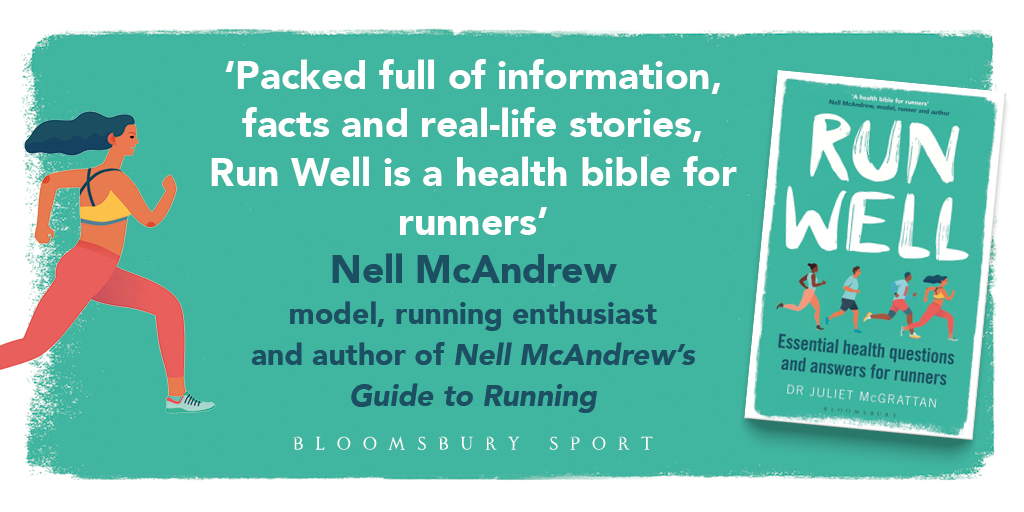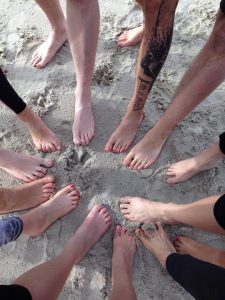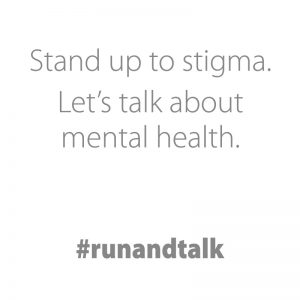Post marathon is a really important time to look after your body. Get things wrong and you are highly likely to injure yourself, delay your return to regular running and even affect your longer term relationship with running. Get it right and you’ll be back in your trainers in no time and ready to take on your next challenge.
If you’re looking for advice on what to do after you first cross the marathon finish line and how to look after yourself in the first 24 hours post race, head to What to Expect After Your Marathon – part one. I cover how you’re likely to feel and what steps you can take to make things easier for yourself once that medal is firmly round your neck. I hadn’t even considered these things before I ran my first marathon so I hope you can learn from my experiences.
Now it’s time to look at the days and weeks after a marathon, what to expect, how to prepare yourself and things to look out for.
How will my body feel after a marathon?
Tired. Of course you’ll feel tired after running 26.2 miles, you expect that. But what some people don’t expect is for fatigue to go on for a few weeks. Your body can take four weeks to fully recover from a marathon. After a couple of days you’ll probably be straight back in to work and family duties. That might even be the very same day if you aren’t able to delegate! Your body is working away deep inside you to repair all the micro trauma that the marathon has caused. Your muscles fibres, bones and connective tissues need to be healed and reinforced. This takes time and energy. I know life must go on but give yourself a break and get some extra sleep.
Stiff. DOMS (delayed onset muscle soreness) strikes the majority of runners after a marathon. Although you’re stiff immediately after running, DOMS sets in the next day or even the day after that. Going down a set stairs can be really tricky! In the past, this muscular pain and stiffness has been blamed on a build up of lactic acid but we now know that this usually clears from the body in a matter of hours. Your muscles are trying to repair all the tiny micro-tears in their fibres caused by your athletic endeavours. In doing so, healing cells and extra tissue fluids flood to the area which become a little inflamed and swollen. The resulting tightness causes stiffness and discomfort. The best preventative is being well-trained for your event. There’s no evidence that stretching will prevent DOMS. Ice baths and compression wear might help but the evidence is mixed. DOMS will go after three to five days but if you need relief in the mean time then try warm baths, gentle exercise, light massage and paracetamol. Don’t try to go for a run until your DOMS has all settled. It’s advised to have a week off exercise and then resume gradually according to how you feel. Easy walking is recommended in the meantime.
Hungry. Hunger hormones can be suppressed by endurance running but in the days following a marathon you might suddenly find you’re ravenous! It’s likely that you will be in calorie deficit after running that far and of course, now your body is in recovery mode it’s using energy for repair too. What’s crucial here is that you’re giving it the nutrients it needs. This might sound easy and obvious but this requirement comes at a time when you’re tired and stiff and might not want to go to the shops. Do yourself a favour and plan ahead and fill your fridge before you run or arrange a shopping delivery for just afterwards. Go for plenty of protein to help muscle repair and foods full of antioxidants such as blueberries, cherries and apples. Drink lots of fluids too, water is fine or try green tea.
Emotional. Running a marathon may have been a life-long goal for you and you’re so proud. You may have trained really hard and be celebrating a PB. Perhaps the run went really badly and you’re full of disappointment. Whichever it is, it’s emotionally draining and adding that to the expected post marathon fatigue can be quite a lot to deal with. Don’t be surprised if it takes you a few weeks to process and digest your experience. Some runners find that in the weeks following a marathon their mood really dips and they can feel quite low. This is the post marathon blues and I want you to be aware of this and know what to do so prepare let’s look at it in more detail.
What are the post marathon blues?
You’ve run a marathon, it’s amazing! Less than one per cent of the population have achieved this. You will be on a high for a long time. Even in years to come you will have that deep knowledge that you can do hard things. However, you should prepare yourself for the possibility of the post marathon blues. This is one of my most-read blog posts ever. I wrote it back in 2015 after a conversation with a woman in the toilet queue of my first marathon. I had no idea it was a thing but I’m so glad she told me about it. A dip in mood, a void and a lack of desire to run can take you by surprise. Head to that blog to learn more about how it feels and what you can do if it strikes.
How can you avoid the post marathon blues?
Hopefully you’re not too alarmed by the possibility that life after marathon isn’t always rosy. Here are some things to keep in mind to help you avoid struggling too much if you are affected:
- Be aware of the blues and on the look out for them
- Write down all the positive things about your marathon (even if it didn’t go well)
- Give yourself some extra self care and nurturing
- Chat with other runners about how you’re feeling
- Set a small short term goal, that may be non-running related, just something to keep you motivated over the coming few weeks.
- Set a longer term goal. Tempting though it is, it doesn’t have to be another marathon! What about a half? A parkrun PB? A number of miles you want to do over the next six months. Whatever suits you. A goal that excites you can keep you feeling positive about the future.
Whether this is your first marathon, or one of many, I hope these tips will help you to recover well, get back in your trainers and stay in love with the crazy thing that is running.
If you’ve enjoyed this blog then you’ll love my book Run Well: Essential health questions and answers for runners, published by Bloomsbury and available everywhere you buy books.

Featured image by Pixabay








Never thought of doing some of these to conquer the post marathon blues. Should be doing Yorkshire this year so I’ve taken note.
It took me by surprise so I try to be proactive to avoid it